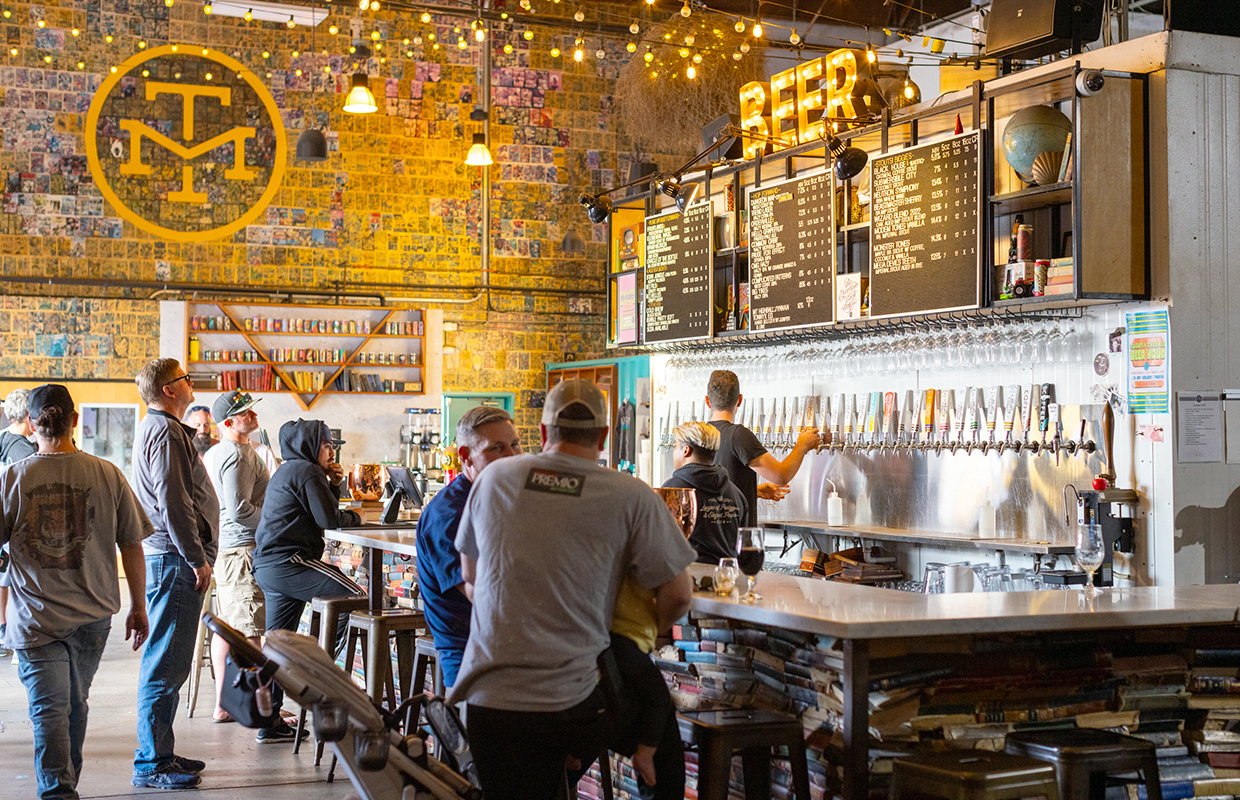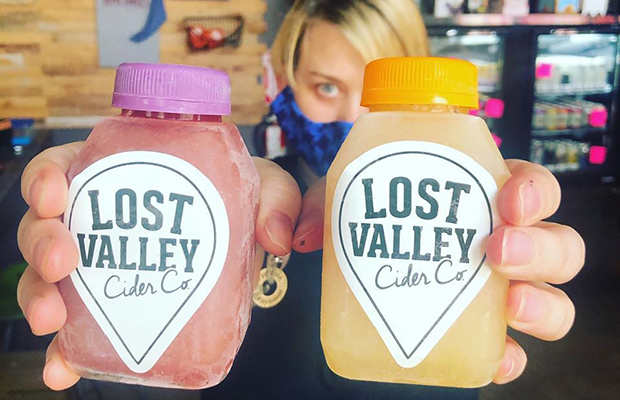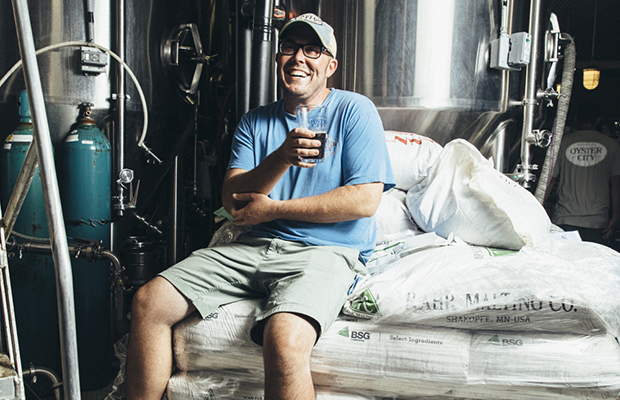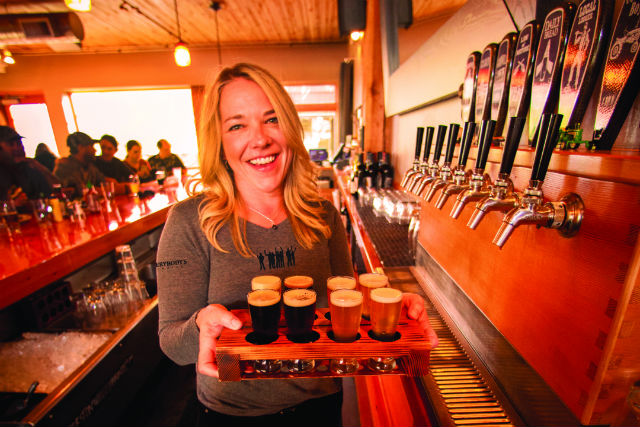
Ordering a beer at your brewery might be an awkward experience for some of your consumers. The first line of defense in getting rid of any causes of anxiety for a customer is your taproom’s bartender.
“A bartender has to have the ability to help steer customers in the right direction and make them feel comfortable,” said Jared Steele, Director of Retail Operations for D9 Brewing Company.
It can be a big ask sometimes to have a staff that can be as friendly as a best friend while as knowledgeable as the brewer that made all those beers that are on tap. All the while they are representing the best of your company and what it should be known for.
It is an understandably tough position to be in and Jake Nunes, the Director of Hospitality for Modern Times Beer said the bar staff needs to be ultra-aware of the guest’s needs and anticipate what they need before they need it. He noted that paying attention to the taproom environment and offering a clean and comfortable space for people to enjoy their suds can be difficult and something that constantly needs to be on the forefront of a manager’s mind so that employees can also pay attention to those details.
Leaving the customer wanting to come back, either for the next beer or their next visit is a goal, Steele added.
“Service and sales above all,” he said.
What to Ask When Hiring
Know what you want from a beertender before you open up hiring inquiries. The people you hire could be the only contact point that your brand has for that consumer. Asking questions from all aspects can be important. Brewery managers around the country shared with Brewer some unique questions to ask and why.
If you were a customer, what would your expectation be for great service at the Jack’s Abby Beer Hall?
“(This) can help identify someone who has a natural tendency towards service and ‘gets it’ that in the end, the Beer Hall experience is what we’re selling,” said Jack’s Abby CEO Sam Hendler. “A customer can buy a 12-pack to bring home for way less than spending an evening with us. What value are we adding to justify that price difference? It’s all in the environment and the service.”
Nunes also likes to ask the candidate to describe the “perfect taproom customer experience” from their point of view.
“From decor, music, ambiance, service, glassware, beer, and everything else,” he said. “Being a taproom bartender is more than just pouring beer for people.”
COOP Ale Works Taproom Manager, Brett Unsell usually likes to start off with a silly question like ‘Would you consider yourself a french fry or tater tot?’
“It helps the interviewee relax and be more of themselves and sometimes gets some fun answers,” he said.
Asking for a favorite beer style or even a favorite brewery in the area can help get a feel for who you are hiring.
“I don’t expect it to be mine,” Steele said, adding he also asks questions to get to know the person better. “I am looking for an honest answer. It helps break the ice in the interview.
“It helps get a feel for their personality. I don’t want to hire a beer server. I want to hire a bartender. A salesperson. Someone that can interact with patrons.”
Unsell agrees.
“Outside of beer, what are some of your hobbies? This question helps me know more about the candidate, and what they do to have fun,” he said.
Availability, Steele said, is a key question to ask.
“A large percentage of your employees are going to be part-time,” he pointed out. “It is key to make sure their needs match what you are looking for.”
First Days on the Job
Nunes said a ‘Beer 101’ class is a good start.
“Our team should be knowledgeable about our product (and other breweries’ products) and be prepared to answer any questions our customers may have,” he said. “Although our staff should be knowledgeable, they should learn how to not over-inform our guests that don’t require a lesson with their pint.”
How to handle glassware is important as well.
“Never stack beer glasses,” Nunes said. “Never put anything in a beer glass except beer. Not trash, food, fingers, or other drinks.”
Exhibit ‘A’ Brewing co-founder and Head Brewer Matthew Steinberg said some of the first training pieces for Exhibit ‘A’ is how to describe the brewery’s beers and a basic understanding of beer culture and beer styles. Pouring a beer the right way is key as well.
Boulevard’s Mandy Waters shared that training begins with walking through how to ensure a guest has the most enjoyable experience while visiting.
“The most important part of our job is to be the best Boulevard brand ambassadors,” said Waters, the company’s General Manager of Boulevard’s Tours & Rec Center. “Then we focus on the fun stuff — the ‘perks’ of working for the brewery, including free beer & swag discounts.
“After that, we move into the importance of responsible consumption and serving our guests responsibly. Finally, we tour new hires through the entire brewery, so they feel like they are genuinely a part of the whole operation, not just an employee in the tasting room.”
For breweries that also serve food, those responsibilities can be much larger for a new hire, so pumping the brakes on the beer knowledge can take a seat to hospitality, Hendler said.
“Our expectations for punctuality and demeanor with guests. How the POS system works. What side work expectations are for each different role,” he said. “We do a lot of cross-training across multiple job functions to ensure a new staff member gets as full a picture as possible of how the place functions and what they need to do to get the basics of the job down.
“There are eras of the brewery where the first focus was a deep dive into every single beer we make. We have found with time that a server who is in the weeds because they don’t know how the POS works, don’t know where the food and beer for their guests are going to be picked up from, don’t know where to restock rollups for their section from. It doesn’t matter how much that server knows about beer because they are not going to be in a state to properly communicate it to their guests. They will be anxious and overwhelmed in a way that will create a poor experience for the guest.
“We do emphasize the basics of our beer, but ramp up that higher level beer education over time in concert with the staff member’s comfort level at the more perfunctory tasks that are necessary for their success.”
Do you Need SOPs?
Jack’s Abby has “a bunch” of SOPs, Hendler added.
“Sometimes there is initial pushback to SOPs as being ‘too corporate,’ he said. “We have certainly heard those complaints over our careers and at times shied away from SOPs due to this pushback.
“Inevitably down the line, there would be issues and one of the things that would come back to us as we were wading through some issues that had festered too long was that we were poor communicators or that our expectations weren’t clear.”
A well-done SOP in concert with strong training and holding staff members accountable with coaching and, if needed, a progressive discipline process is an answer to these cycles.
“SOPs are a critical part of that initial communication of expectations,” they said.
The big thing to understand is you are not reinventing the wheel, Steele said.
“Bars and beer have been around since the time of Game of Thrones. Meaning opening the bar, cleaning the bar, and closing the bar have always been the same,” he said. “Those are always standard operating procedures.
“The big thing I establish is responsibility. Every employee has a responsibility to their co-workers, management, and most of all customers. Do the job.”
Steinberg said the taproom has extensive SOPs and recently added in a lot to explain the brewery’s culture, DEI, and how to talk to people. First and foremost, though, it’s proper techniques for every aspect of the job.
“It’s hard to just voice the proper way to clean,” Steinberg said, “whether it’s draft lines, surfaces, or just the space in general.”
Photo courtesy Modern Times Beer




Be the first to comment